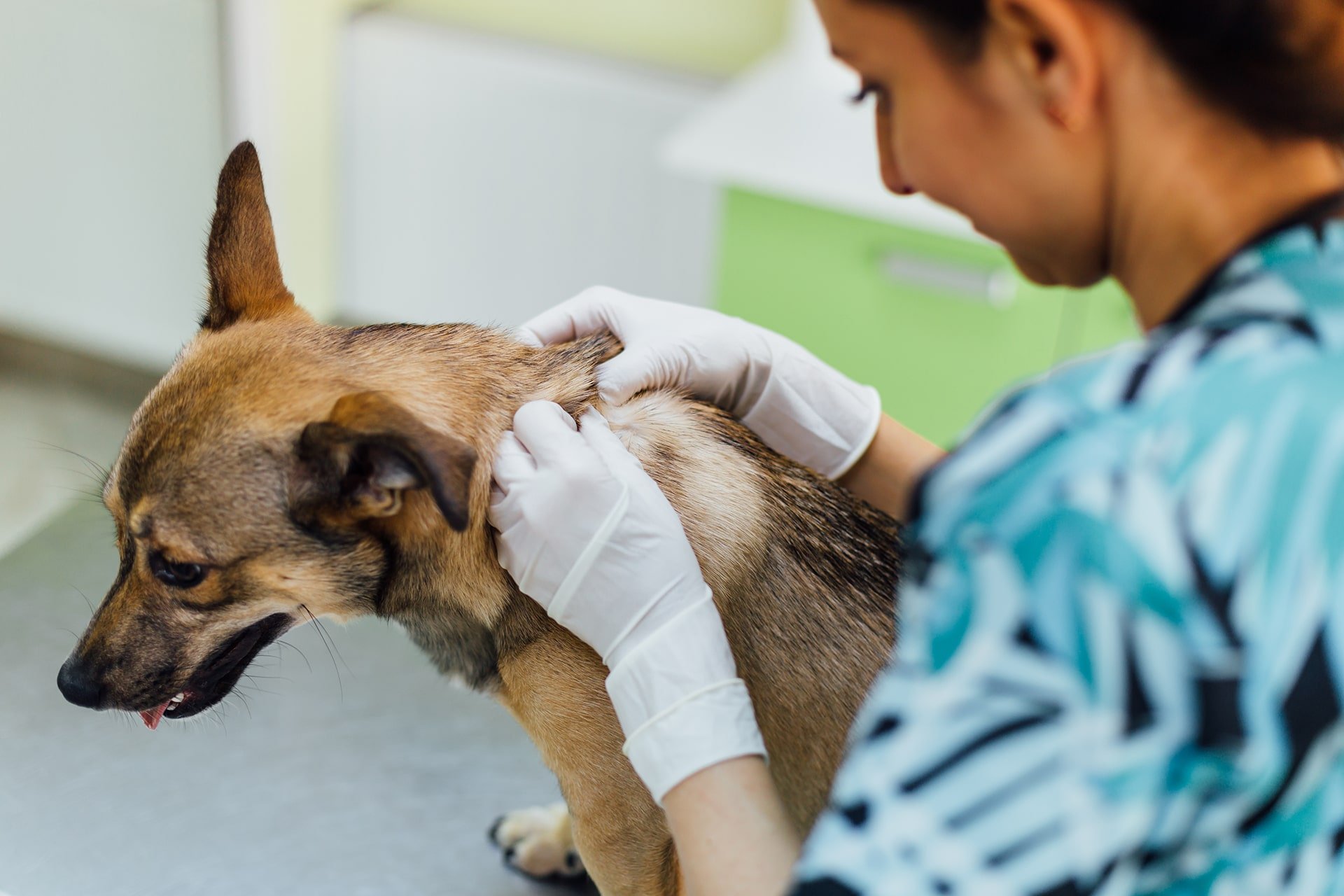Service
Dermatology
Skin and ear problems are one of the most common reasons dogs and cats are brought to the veterinarian. Skin conditions can be caused by a variety of problems from parasites to food allergies and seasonal allergies. Many pets are plagued with multiple problems occuring at the same time. Recurrent skin and ear problems can be frustrating, time consuming and costly to treat. Proper diagnosis is essential when treating and preventing recurrent skin problems. At Cornerstone Veterinary Clinic, we are committed to helping owners discover the reasons behind their pet’s problems so we can treat them effectively.
Book Appointment
Contact Us
About
Why is my pet so itchy?
How are skin problems diagnosed?
Skin problems can be caused by a variety of things in dogs and cats. In many cases more than one problem may be occuring at the same time. First the doctor will ask for a detailed history including when the skin problem began, how long it has lasted, if the problem has occurred before, what food(s) your pet eats and much more. In order for the doctor to determine what is causing your pet’s condition and how best to treat it, some routine tests may be recommended.
Ear Swab Cytology
If your pet is experiencing itchy ears, an ear infection may be to blame. In order for the doctor to determine which medication is best suited to treat your pet’s infection, and how long treatment will be required, a sample will be obtained from the ear and examined under a microscope. Common pathogens causing ear infections include:
1. Malasezzia (yeast): purple staining, snowshoe or peanut shaped organisms
2. Cocci (bacteria): small pinkish purple round organisms
3. Rods (bacteria): pink staining long, straight organisms
4. Ear mites (parasite)
Skin Scraping
If your pet is experiencing itchy skin or hairloss, the doctor may suspect demodectic or sarcoptic mange as the primary problem. A simple skin scraping evaluated under the microscope will help to diagnose both of these diseases.
Skin Cytology
Skin cytology helps the doctor determine if your pet has yeast or bacterial skin infections. The doctor will make an impression of an area of the skin with a glass slide and examine it under the microscope. The results will help the doctor decide what type of medication is indicated.
Allergy Testing
Dogs and cats can be allergic to many of the same things that cause allergies in people. Molds, pollens, dust mites, flea bites, and foods can all cause allergy problems in our pets. However, instead of hayfever symptoms, most pets respond to allergens with itchy skin. If the doctor suspects your pet has a seasonal allergy, or if previous treatments have been unsuccessful, allergy testing may be recommended. Once the doctor has determined what specific things are causing your pet’s allergies, an allergy injection can be formulated to help desensitize your pet or the doctor may recommend ways to avoid exposure to the offending allergens. In many cases, allergies are the underlying cause of many common skin conditions such as chonic ear and skin infections. Treating the underlying allergy is the key to preventing these recurrent problems and keeping your pet healthy.
Once the doctor has determined what may be causing your pet’s skin condition, treatment will begin and appropriate follow-up care will be recommended.

